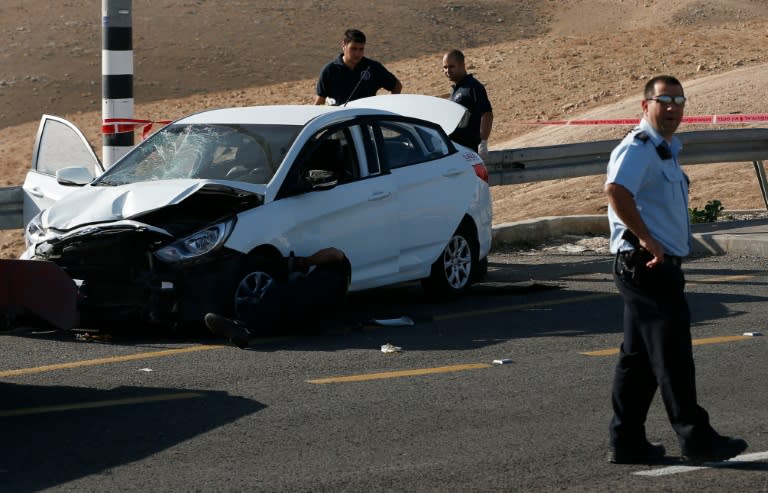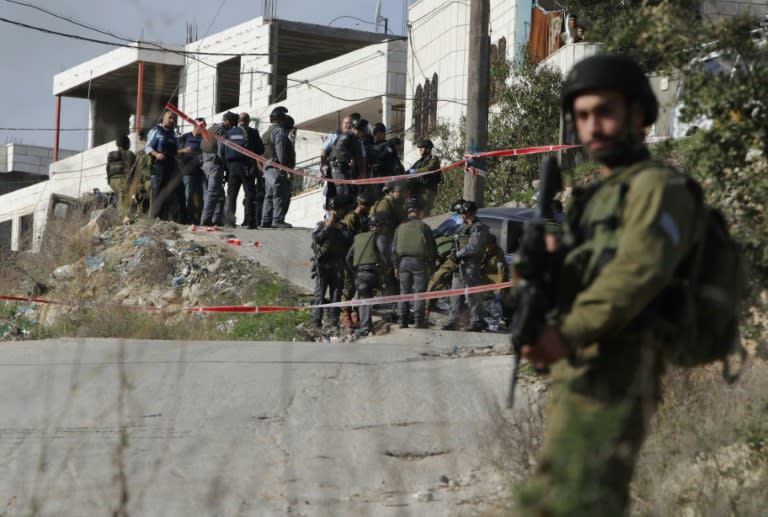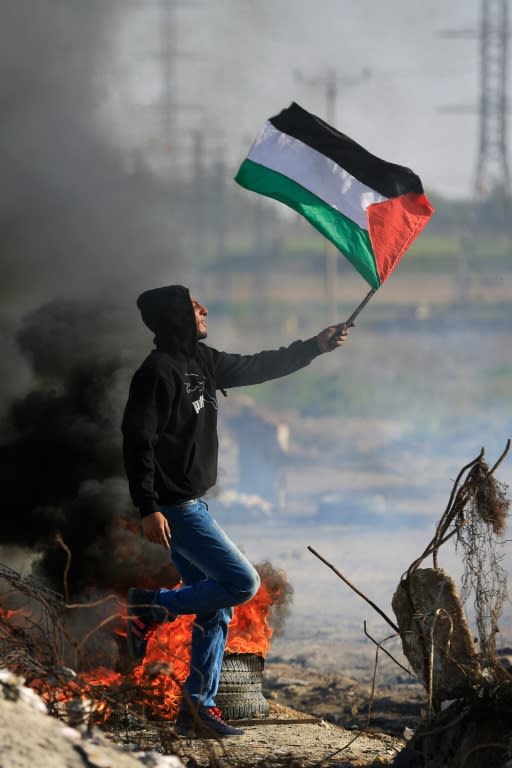Two Palestinians ram cars into Israeli troops, shot dead
Two Palestinians rammed their cars into Israeli soldiers in the occupied West Bank on Friday, injuring seven, before being killed, raising this week's death toll from Palestinian-Israeli violence to 11. Meanwhile, dozens of Palestinians were wounded by Israeli army gunfire, one seriously, during clashes in the West Bank and along the Gaza Strip's border with the Jewish state. In the first attack, a Palestinian drove into two soldiers at a bus station near Kfar Adumim settlement, northeast of Jerusalem, and was shot dead, police said. Police identified him as Fadi Hassib, from Ramallah, whose brother was shot dead on Sunday after ramming his car into Israelis before charging at them with a knife. Israel's Magen David Adom emergency medical service said the two soldiers hit Friday were taken to hospital in Jerusalem with light to moderate injuries. A senior police officer said the assailant got out of his car and started to run before he was shot dead by a civilian. Several hours later, another Palestinian was shot dead after driving his car into a group of soldiers, injuring five close to Beit Ummar settlement near Hebron in the southern West Bank, an army spokesman said. He identified the attacker as 20-year-old Omar Zaakik. Later in the evening, an unknown assailant stabbed and seriously wounded an Israeli border guard near a bus stop in the northern coastal town of Nahariya, a police spokeswoman said. The attacked fled. "It is apparently an attack carried out for nationalist reasons," said the spokeswoman, indicating it could be part of the wave of Palestinian-Israeli violence. - Dozens of Palestinians wounded - Elsewhere, 20 Palestinians were wounded by army gunfire in clashes Hebron and in Ramallah, the Palestinian health ministry said. One was said to have been seriously wounded after being shot in the stomach. Another 33 Palestinians were injured by gunfire at four different points along the Gaza border, according to paramedics. And in a rare event, around 180 Israelis and Palestinians gathered near Beit Jala, between Jerusalem and Bethlehem, to issue a joint call for an end to the Israeli occupation, an AFP journalist said. Friday's incidents are the latest in a wave of unrest that has shaken Israel and the Palestinian territories since early October. They raise the number of Palestinians killed since October 1 to nearly 100, including an Israeli Arab. Over half of them have been alleged perpetrators of stabbing, shooting and car ramming attacks aimed at Israeli civilians and security forces. Others have died in clashes with security forces. The violence has also left 17 Israelis, an American and an Eritrean dead. Ten Palestinians and one Israeli soldier have been killed since the start of this week. Each Friday, Palestinian movements headed by Islamist movement Hamas call for a "day of rage", which escalates into clashes between Palestinian youths throwing stones and Molotov cocktails and Israeli security forces who respond by shooting real or rubber-coated bullets and tear gas. On Friday, clashes were reported across the occupied territories, wounding several people, according to the Red Cross which had yet to compile a full tally. The international community has regularly urged Israelis and Palestinians to take measures to ease the unrest. On Monday, Israeli Prime Minister Benjamin Netanyahu announced a series of new security measures likely to affect the daily lives of Palestinians in the West Bank. He announced tighter controls on Palestinian vehicles and an increase in the number of so-called "bypass roads" which create separate routes for Palestinians and Jewish settlers. During a visit to a West Bank settlement that has been the scene of numerous attacks, he also said work permits would be withdrawn from the families of alleged attackers. Netanyahu added there would be "no limits" on the powers of Israeli soldiers in the West Bank, where some 400,000 Jewish settlers live among 2.8 million Palestinians. Attempts to ease the tensions, including a visit by US Secretary of State John Kerry on Tuesday, have so far proved unsuccessful.




